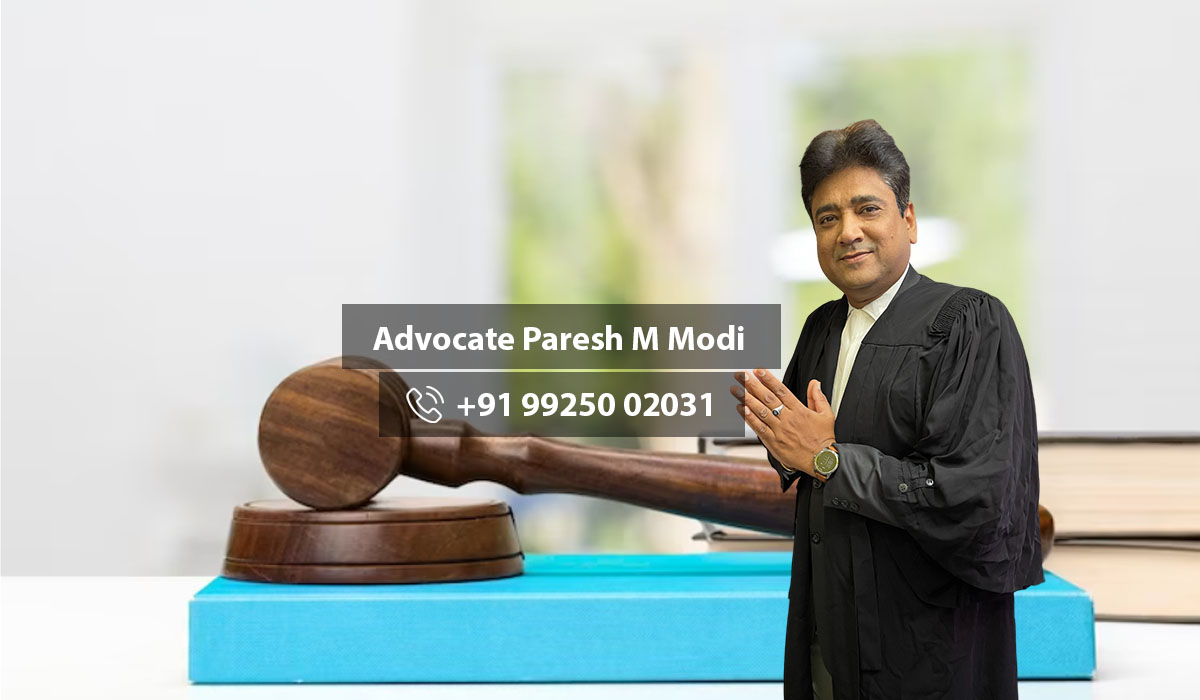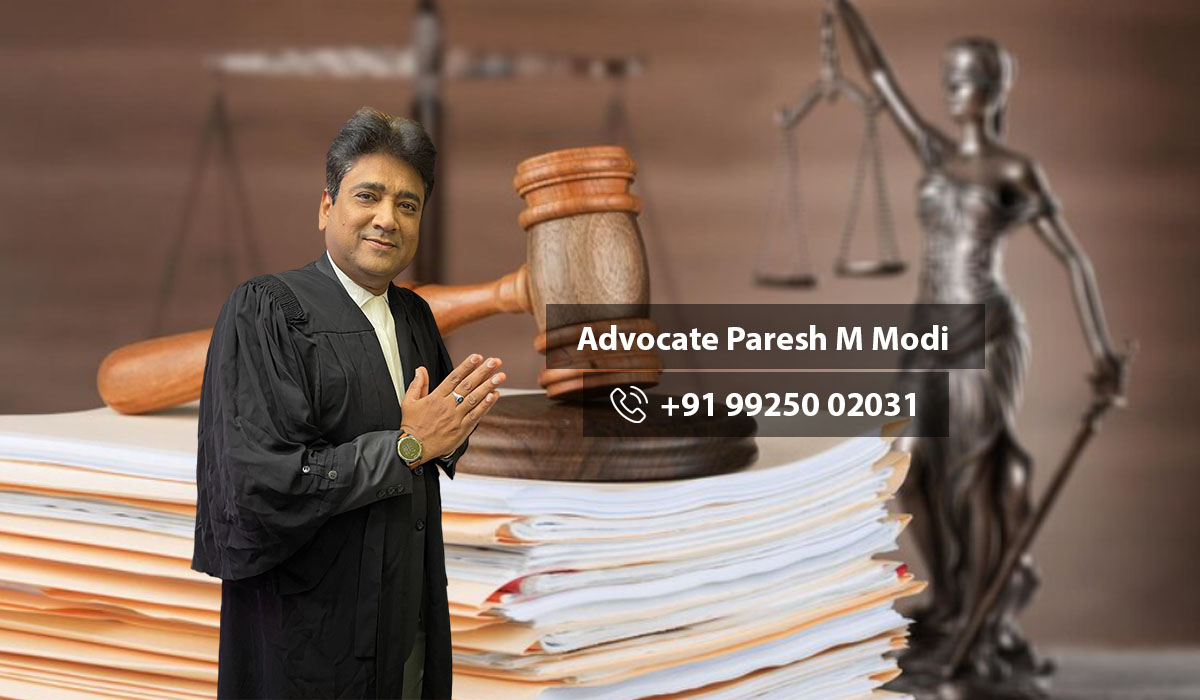Social Media Blackmailing & its laws | Advocate Paresh M Modi
1) બ્લેકમેઇલિંગ કઇ રીતે કરવામાં આવે છે?
જવાબ: બ્લેકમેઇલિંગ નીચે મુજબ રીતે કરવામાં આવે છે:
અંગત ફોટા કે વિડિયો વાઇરલ કરવાની ધમકી આપી
પૈસા કે અન્ય લાલચની માંગ
ખોટા એકાઉન્ટથી દબાણ
ગુપ્ત માહિતી જાહેર કરવાની ધમકી
કાયદો:ભારતીય દંડ સંહિતા (IPC) કલમ 384 (અપહરણ દ્વારા ખંડણી)
આઈટી એક્ટ 2000 કલમ 66A, 66E, 67
2) ન્યુડ ફોટાઓ સાથે બ્લેકમેઇલિંગ કરવામાં આવે તો શું કરાય?
જવાબ:
પોલીસ સ્ટેશન કે સાઇબર ક્રાઇમ સેલમાં તરત ફરિયાદ કરો
પુરાવા (સ્ક્રીનશોટ, મેસેજ, ઈમેઈલ) સાચવો
કાયદો:IPC કલમ 292, 354C, 509
IT Act કલમ 66E, 67, 67A
3) ખોટા એકાઉન્ટ બનાવીને ફોટો મુકીને બદનામ કરવામાં આવે તો શું કરાય?
જવાબ:
ફોટો સાથેના ફેક એકાઉન્ટના સ્ક્રીનશોટ લો
સાયબર ક્રાઇમ પોર્ટલ (cybercrime.gov.in) કે નજીકના પોલીસ સ્ટેશનમાં ફરિયાદ કરો
કાયદો:IPC કલમ 500 (માનહાની), 469 (બદનામ કરવાનું બનાવટ)
IT Act કલમ 66C, 66D
4) વિડિયો-ફોટો વાયરલ કરવાની ધમકી મળે તો શું કરાય?
જવાબ:
એ વ્યક્તિ સાથે વાત બંધ કરો
તમામ પુરાવા સાચવો
તરત પોલીસમાં ફરિયાદ કરો
કાયદો:IPC કલમ 503 (ધમકી), 507
IT Act કલમ 66E, 67
5) સોશિયલ મિડિયાને ડિએક્ટિવ કઇ રીતે કરીએ?
જવાબ:
દરેક એપ (જેમ કે Instagram, Facebook) માં Account Settings > Privacy > Deactivate Account નો વિકલ્પ હોય છે
જરૂર પડે તો પ્લેટફોર્મના Support Center ને રિપોર્ટ કરો
6) પોલીસમાં ફરિયાદ કઇ રીતે કરવામાં આવે – ક્યાં?
જવાબ:
નજીકના પોલીસ સ્ટેશન અથવા સાઇબર ક્રાઇમ સેલમાં જઇને લેખિત અરજી આપવી
cybercrime.gov.in પર ઓનલાઈન ફરિયાદ નોંધાવી શકાય છે
7) પોલીસ ફરિયાદ બાદ સોશિયલ મિડિયા પરથી ફોટા દુર થઇ જશે ખરા?
જવાબ:
પોલીસ દ્વારા રિપોર્ટ અને અનુસંધાન બાદ સોશ્યલ મીડિયા કંપનીઓને નોટિસ આપવામાં આવે છે
જેણે કન્ટેન્ટ નાખ્યું છે તેનું એકાઉન્ટ પણ બ્લોક થઈ શકે છે
કાયદો:IT Act કલમ 69A
8) આ માટે આઇટી એક્ટમાં શું જોગવાઇ કરવામાં આવી છે?
જવાબ:
IT Act 2000 ની કલમો:
66A: ત્રાસ આપતા મેસેજ
66E: ગોપનીયતા ભંગ
67, 67A: અશ્લીલ સામગ્રી અને તેનુ વિતરણ
9) બ્લેકમેલથી પોતાને કઈ રીતે બચાવી શકાય?
જવાબ:
અંગત માહિતી શેર કરવી નહીં
ગુપ્ત વાતચીતના સ્ક્રીનશોટ રાખવો
કોઈ શંકાસ્પદ ધમકી હોય તો તરત પોલીસે સંપર્ક કરવો
10) બ્લેકમેલરને પૈસા આપી દઇએ તો તે રોકાઇ જશે?
જવાબ:
નહી, તે વધારે પૈસા માંગવા લાગશે
ફરિયાદ કર્યા વગર પૈસા આપવાથી તમે ગુનાહિત કેસમાં ફસાઈ શકો
11) બ્લેકમેઇલિંગ થાય ત્યારે પુરાવા કેવી રીતે ભેગા કરવા?
જવાબ:
સ્ક્રીનશોટ, મેસેજ, ઈમેઈલ, કોલ રેકોર્ડિંગ
આ બધું ડિજિટલ ફોર્મેટમાં સાચવીને પેનડ્રાઇવ કે ઈમેઈલમાં સ્ટોર કરો
12) બ્લેકમેલર સામે પોલીસમાં ફરિયાદ કરી શકાય છે?
જવાબ:
હા, ફરિયાદ IPC અને IT એક્ટ હેઠળ નોંધાવી શકાય છે
ફરિયાદ માટે તમારી ઓળખ અને પુરાવા આપવાથી પોલીસ પગલાં લઈ શકે છે
13) બ્લેકમેલર દ્વારા 10 મિનિટમાં વિડિયો વાયરલ કરવાની ધમકી કેટલી યોગ્ય હોય છે?
જવાબ:
એ ગુનાહિત ધમકી છે અને એ રીતે ડરાવવું પણ IPC કલમ 503, 507 હેઠળ ગુનો ગણાય છે
તાત્કાલિક પોલીસના સાયબર વિભાગનો સંપર્ક કરવો જોઈએ
જો તમે વધુ સહાયતા માંગો અથવા આ વિષય પર વકીલની સલાહ જોઈતી હોય તો એડવોકેટ પરેશ એમ મોદી (Advocate Paresh M Modi) ને સંપર્ક કરી શકો છો:
Website: www.advocatepmmodi.in
Mobile: +91 9925002031
Email: advocatepmmodi@gmail.com
IN ENGLISH LANGUAGE
સોશિયલ મીડિયા બ્લેકમેઇલિંગ અને તેના કાયદા | એડવોકેટ પરેશ એમ મોદી
1) In what ways is blackmailing done?
Answer:
Blackmailing can be done in the following ways:
Threatening to leak private photos or videos
Demanding money or favors under pressure
Using fake social media accounts to manipulate
Threatening to expose personal information
Laws:IPC Section 384 (extortion)
IT Act, 2000 – Sections 66A, 66E, 67
2) What to do if someone is blackmailing with nude photos?
Answer:
Immediately report to the local police or cyber crime cell
Collect and preserve evidence (screenshots, messages, emails)
Laws:IPC Sections 292, 354C, 509
IT Act Sections 66E, 67, 67A
3) What to do if someone creates a fake account and posts photos to defame?
Answer:
Take screenshots of the fake profile and posts
File a complaint at cybercrime.gov.in or visit your nearest police station
Laws:IPC Section 500 (defamation), 469 (forgery for harming reputation)
IT Act Sections 66C, 66D
4) What if someone threatens to leak a video or photo?
Answer:
Stop communication with that person
Save all evidence
File an immediate police complaint
Laws:IPC Sections 503 (criminal intimidation), 507 (anonymous threats)
IT Act Sections 66E, 67
5) How to deactivate social media accounts?
Answer:
Go to the settings of each app (Instagram, Facebook, etc.)
Navigate to Account Settings > Privacy > Deactivate Account
Report the profile or content if necessary to the platform’s support
6) How and where to file a police complaint?
Answer:
Visit the nearest police station or cyber crime cell
You can also file a complaint online at: https://cybercrime.gov.in
7) Will photos be removed from social media after filing a police complaint?
Answer:
Police may issue notice to social media platforms
If proper reports are filed, platforms often take action to remove such content
Law:IT Act Section 69A (blocking public access to information)
8) What provisions are made under the IT Act for such offenses?
Answer:
Relevant sections under the IT Act 2000:
66A: Offensive messages
66E: Violation of privacy
67: Publishing obscene material
67A: Publishing sexually explicit content
9) How to protect yourself from blackmail?
Answer:
Avoid sharing private data or photos
Don’t trust unknown online connections
Keep records of any threatening messages
Report suspicious behavior immediately
10) Will paying the blackmailer stop them?
Answer:
No. It may encourage further demands
Paying them without reporting may lead to deeper trouble or legal complications
11) How to collect evidence of blackmailing?
Answer:
Save screenshots, messages, call recordings
Preserve the data in digital formats or email it to yourself for backup
12) Can you file a police complaint against a blackmailer?
Answer:
Yes, you can file under IPC and IT Act provisions
Submit your identity and evidence for effective police action
13) How serious is a threat to leak a video within 10 minutes?
Answer:
It is a serious criminal threat
IPC Sections 503 and 507 cover this as a punishable offense
Report immediately to cyber crime authorities or police
If you need further help or legal guidance, you can contact Advocate Paresh M Modi, who is experienced in cyber crime and criminal cases:
📞 Mobile: +91 9925002031
☎️ Office Landline: +91-79-48001468
📧 Email: advocatepmmodi@gmail.com
🌐 Website: www.advocatepmmodi.in
🏢 Office Address: Office No. C/112, Supath-2 Complex, Opp. Kohinoor Plaza Hotel, Near Old Wadaj Bus Stand, Ashram Road, Ahmedabad – 380013, Gujarat, India




